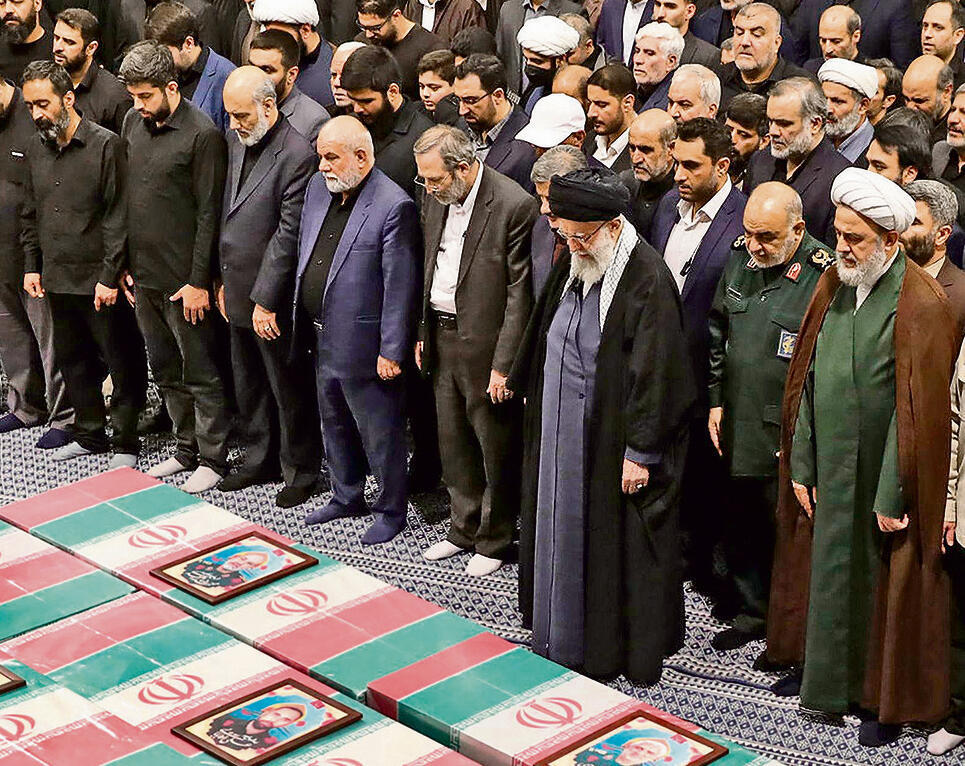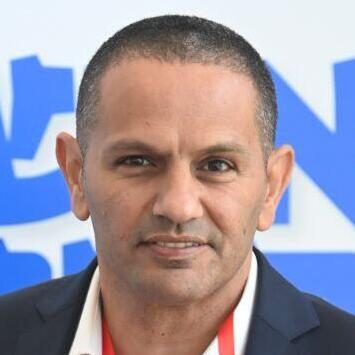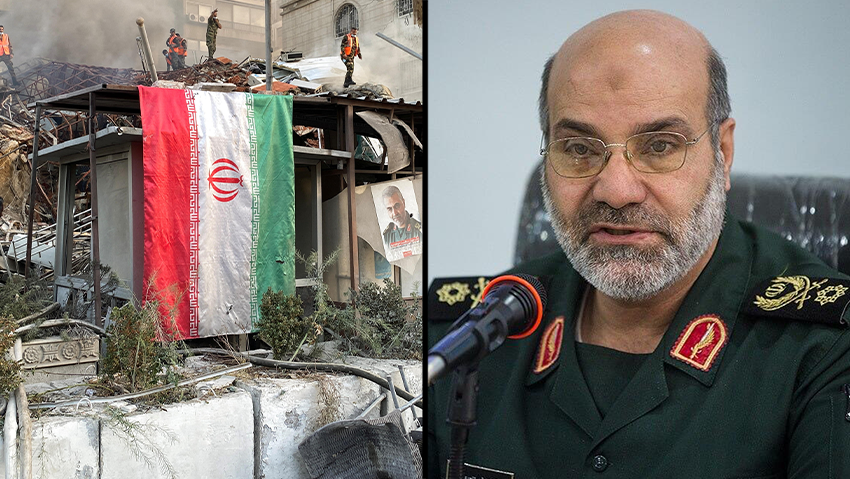Getting your Trinity Audio player ready...
The recent days in Israel have evoked memories of the atmosphere preceding the Second Gulf War, or alternatively, the panic during the first days of the COVID-19 pandemic.
Instead of understanding the extent of Israel's actions against Iran, following a bold and justified elimination of a senior figure in the Iranian axis of evil, according to foreign media reports, Israelis debated whether to first rush to grocery stores or ATMs.
2 View gallery


Iranian Supreme Leader Ayatollah Ali Khamenei stands over the caskets of Revolutionary Gaurd officials killed in Damascus consulate attack
Only after a series of disturbing messages did the IDF spokesperson issue a statement and try to soothe the public, succeeding only partially. The Iranians have yet to launch a single missile, and yet, they have already achieved a significant psychological impact.
The public's anxiety, rooted in the blunders of October 7, has also led to questions on the necessity of eliminating Hassan Mahdawi, a senior figure in Iran’s Revolutionary Guards. The resounding answer is "yes": this man, his deputy, and their team are responsible for everything launched at Israel from Lebanese and Syrian territories in this war.
He was the deputy of Qasem Soleimani, and although he may have been less influential and charismatic than his predecessor, he had accumulated enough transgressions to justify seizing the opportunity to send him to an urgent meeting with his former commander.
As for Soleimani, a senior intelligence official recently offered an interesting insight: "Had Soleimani been alive, he would have been able to influence Supreme Leader Khamenei and lead Iran, along with Hezbollah, to join the war, perhaps even as early as October 7."
This is not the situation, yet it is improbable that Iran will remain silent in response to the actions in Damascus. The aggressive statements from the upper echelons of the mullah regime, from Khamenei downwards, leave little room for speculation, and the pressure from other players in the Middle Eastern arena necessitates some form of action.
However, it is important to emphasize to the understandably alarmed public that the IDF does not believe a full-scale war will break out. It is more likely that there will be an attempt to strike a "high-quality" military target, but not necessarily an action that alters the balance of power.
Nonetheless, the IDF is prepared for all possible scenarios, whether they originate from Iranian soil or through its proxies in the region. The options at hand are varied: missiles, rockets, drone attacks, terrorist infiltrations, attacks abroad, cyberattacks and even several simultaneous terrorist operations.
The increase in alertness is intended to minimize the possibility of such an operation being carried out, and especially succeeding. Should the defenses somehow be breached, a planned response is in place for any scenario.
To understand why the tension escalated into hysteria, it's essential to candidly address the fact that the IDF Intelligence Corps is experiencing the most severe crisis in its history.
This crisis began with a complete loss of public trust due to the inaccurate assessment of Hamas' intentions and the mishandling of events on the night of October 7.
As if this were not enough, the head of the Research Division, effectively the second in command of the corps, was forced to retire due to a cancerous tumor discovered in his head. Brigadier General Amit Saar announced his resignation this week due to his medical condition but also took responsibility for the failure.
Today, it must be acknowledged that, aside from the professional errors, this officer has significantly contributed to Israel's security and has also been a genuinely decent person. May he overcome his illness.
Brigadier General (res.) Itay Barron will feel the position in the interim before Colonel A. is expected to take over the position full-time. He is currently studying at the National Security College and previously served as an assistant to Military Intelligence chief Herzi Halevi, who currently serves as IDF chief of staff.
Like all appointments made from now until the chief of staff leaves his post, Colonel A.'s appointment is expected to undergo close scrutiny. What remains unclear is why the hold-up in his official appointment: if the criticism is inevitable, better to face it once rather than twice.
However, you can hardly blame the head of the Research Division when his commander, Intelligence Directorate chief Major General Aharon Haliva just can’t help himself but further fuel the flames of panic, with the IDF Spokesperson's Unit’s peculiar conduct exacerbating the situation.
The army released a statement based on remarks Haliva made to senior intelligence officials following the upheaval in the Research Division. "I have told you more than once that it is not certain that the worst is behind us and we are facing complex days ahead,” Haliva is quoted as saying.
Even the obvious needs stating: there are arguably few less suitable to use the phrase "I told you so" than Haliva. However, what's more critical is that the already tense public was exposed to such a message, promptly putting pressure on local authorities to open shelters, while generator sales spike.
Equally responsible for the situation is the IDF, which released the statement as part of a series of briefings and alerts on heightened readiness. It's reasonable to wonder if this is not just a cautious approach but also the IDF's way of demonstrating to the public that this time, unlike October 7, it is fully prepared and will not be caught off guard.
Herein lies the real problem: the public lacks trust – neither in the warnings nor in the reassurances. This isn't just unhealthy; it's downright dangerous.




